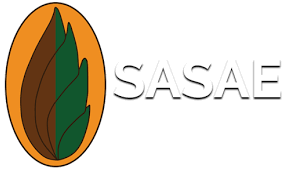Recognising indigenous vegetables as potential contributors to livelihoods development: a case of two district municipalities in northern KwaZulu-Natal
DOI:
https://doi.org/10.17159/2413-3221/2021/v49n2a11213Keywords:
indigenous vegetable products, livelihoods, rural communities, socioeconomic statusAbstract
South Africa is a food sufficient country. Native South Africans, however, continue to suffer from food insecurity at a household level, even under contemporary democratic leadership. Influenced by the COVID-19 pandemic, the study was conducted to determine the role of indigenous vegetables in rural livelihoods in the two selected district municipalities of northern KwaZulu-Natal, namely iLembe District Municipality (IDM) and the King Cetshwayo District Municipality (KCDM). A purposive sample which consisted of 130 participants (n=130) was drawn, and data were analysed descriptively using Microsoft Excel Software. Our findings point in the direction that indigenous vegetables have the potential to contribute to livelihoods development. It was also found that these vegetables can thrive under diverse climatic conditions, including both irrigated and rainfed areas. This is especially important in a country like South Africa which faces major challenges of water scarcity and household food insecurity. Most household heads in the study were unemployed and relied on government monetary incentives for survival. It is concluded that there is a need to include these indigenous crops as part of the main discussions in the food discourse and to recognise them as a tool to enhance livelihood development.
Downloads
References
AKINOLA, R., MABHAUDHI, L., DE BRUIN, F. AND RUSCH, L. 2020. A review of indigenous food crops in Africa and the implications for more sustainable and healthy food systems. Sustainability., (12): 1-30. DOI: https://doi.org/10.3390/su12083493
CHETENI, P., KHAMFULA, Y. AND MAH, G. 2019. Gender and poverty in South African rural areas. Cogent Soc. Sci., (5): 1-19. DOI: https://doi.org/10.1080/23311886.2019.1586080
CLELAND, J. 2017. Population growth, employment, and livelihoods: The triple challenge. J. Demogr. Econ., (83): 51-61. DOI: https://doi.org/10.1017/dem.2016.15
COGTA. 2017. Integrated Development Plan 2015/16 Review. Ilembe District Municipality. Retrieved January 2021, https://ilembe.gov.za/wp-content/uploads/2020/04/Final-IDP-Review-2015-16-29-May-2015.pdf
DAFF. 2013. Most common indigenous food crops of South Africa. Pretoria: Directorate: Plant Production.
DIVISI, D., DI LEONARDO, G., ZACCAGNA, G. AND CRISCI, R. 2017. Basic statistics with Microsoft Excel: a review. J. Thorac. Dis,, 9(6): 1734-1740. DOI: https://doi.org/10.21037/jtd.2017.05.81
DPME. 2014. Twenty year review South Africa: 1994-2014. Retrieved January 2021, https://www.gov.za/sites/default/files/gcis_document/201409/20yearreview.pdf
DU PLESSIS, P. AND MESTRY, R. 2019. Teachers for rural schools – a challenge for South Africa. S. Afr. J. Educ., 39(1): S1-S9. DOI: https://doi.org/10.15700/saje.v39ns1a1774
EOH COASTAL AND ENVIRONMENTAL SERVICES. 2018. Environmental Management Framework. Richards Bay: King Cetshwayo District Municipality.
EZEANYA-ESIOBU, C. 2018. Indigenous Vegetable Production and the Economic Empowerment of Rural Women in Africa: Reality, Prospects, and Challenges in Rwanda. IK: Other Ways of Knowing, (4): 133-156.
FAO. 1996. World Food Summit: Declaration on World Food Security. Rome: Italy.
GAEDEI, B. AND VERSTEEGII, M. 2011. The state of the right to health in rural South Africa. S Afr Med., (9): 99-106.
INEKE, V., JANSEN VAN RENSBURG, W., ZIJL, V. AND SONJA, L. 2007. Re-Creating Awareness of Traditional Leafy Vegetables in Communities. African J. Food, Agric. Nutr. Dev., (7): 1-3.
JANSEN VAN RENSBURG, W., VAN AVERBEKE, W., SLABBERT, R., FABER, M., VAN JAARSVELD, P., VAN HEERDEN, I., . . . OELOFSE, A. 2007. African leafy vegetables in South Africa. Water SA, 33(3): 317-326. DOI: https://doi.org/10.4314/wsa.v33i3.180589
JEBRIL, N. 2020. World Health Organization declared a pandemic public health menace: a systematic review of the coronavirus disease 2019 “COVID-19”. Int. J. Psychosoc., 24(9): 9160-9166. DOI: https://doi.org/10.2139/ssrn.3566298
LORRAINE, M. AND MOLAPO, R. 2014. South Africa’s Challenges of Realising her Socio-Economic Rights. Mediterr. J. Soc. Sci., 5(27): 900-907. DOI: https://doi.org/10.5901/mjss.2014.v5n27p900
MADHAVAN, S., SCHATZ, E., GÓMES-OLIVÉ, F. AND COLLINSON, M. 2017. Social Positioning of Older Persons in Rural South Africa: Change or Stability? J. South. Afr. Stud., 43(6): 1293-1307. DOI: https://doi.org/10.1080/03057070.2017.1365522
MASIPA, T. 2018. South Africa's Transition to democracy and democratic consolidation: A reflection on socio-economic challenges. J. Public Aff., (18) 1-6. DOI: https://doi.org/10.1002/pa.1713
MAULU, S., HASIMUNA, O., MUTALE, B., MPHANDE, J AND SIANKWILIMBA, E. 2021. Enhancing the role of rural agricultural extension programs in poverty alleviation: A review. Cogent food agric., 7(1). DOI: https://doi.org/10.1080/23311932.2021.1886663. DOI: https://doi.org/10.1080/23311932.2021.1886663
MENDELSON, M. AND COHEN, C. 2020. The COVID-19 crisis in South Africa: Protecting the vulnerable. S. Afr. Med., 110(9): 825-826. DOI: https://doi.org/10.7196/SAMJ.2020.v110i9.15116
MEYER, D. 2014. Exploration of Solutions for Revitalisation of Rural Areas in South Africa. Mediterr. J. Soc. Sci., 5(4): 613-625. DOI: https://doi.org/10.5901/mjss.2014.v5n4p613
MOTSA, N., MODI, A. AND MABHAUDHI, T. (2015). Sweet potato (Ipomoea batatas L.) as a drought tolerant and food security crop. S. Afr. J. Sci., 111(11/12): 1-8. DOI: https://doi.org/10.17159/sajs.2015/20140252
NPC. 2012. National Development Plan. Pretoria: National Planning Commission, Office of the Presidency.
PAUL, A., NATH, T., MAHANTA, J., SULTANA, N., KAYES, A., NOON, S., . . . PAUL, S. 2020. Psychological and Livelihood Impacts of COVID-19 on Bangladesh Lower Income People. Asia Pac J Public Health, 1-9. DOI: https://doi.org/10.1177/1010539520977304
SCHATZ, E., MADHAVAN, S., COLLINSON, M., GO´MEZ-OLIVE´, F. AND RALSTON, M. 2015. Dependent or Productive? A New Approach to Understanding the Social Positioning of Older South Africans Through Living Arrangements. Res. Aging., 37(6): 581-605. DOI: https://doi.org/10.1177/0164027514545976
SLABBERT, R., SPREETH, M. AND KRUGER, G. 2004. Drought tolerance, traditional crops and biotechnology: breeding towards sustainable development. S. Afr. J. Bot., 70(1): 116-123. DOI: https://doi.org/10.1016/S0254-6299(15)30271-4
SSA. 2014. Census 2011: Profile of older persons in South Africa. Pretoria: Statistics South Africa. Retrieved January 2021, https://www.statssa.gov.za/publications/Report-03-01-60/Report-03-01-602011.pdf
STAUNTON, C., SWANEPOEL, C. AND LABUSCHAIGNE, M. 2020. Between a rock and a hard place: COVID-19 and South Africa’s response. J. Law Biosci., 7(1): 1-12. DOI: https://doi.org/10.1093/jlb/lsaa052
TREASURY, K. 2017. Socio-economic review and outlook 2017/2018. Provincial treasury. Pietermaritzburg. Retrieved January 2021, https://www.kzntreasury.gov.za/ResourceCenter/Documents%20%20Fiscal%20Resource%20Management/SERO_Final_28%20Feb%202017.pdf
TSWANYA, T. 2020. So. Africa: Three million South Africans have lost their jobs as a result of the Covid-19 pandemic, women most affected. Johannesburg, Gauteng, South Africa. Retrieved January 2021, https://www.business-humanrights.org/en/latest-news/so-africa-three-million-south-africans-have-lost-their-jobs-as-a-result-of-the-covid-19-pandemic-women-most-affected/
VORSTER, H. 2007. The role and production of traditional leafy vegetables in three rural communities in South Africa. University of Pretoria.
Downloads
Published
Issue
Section
License
Copyright (c) 2021 Qinisani Qwabe, Elliot Zwane, Jan Swanepoel

This work is licensed under a Creative Commons Attribution 4.0 International License.







.png)